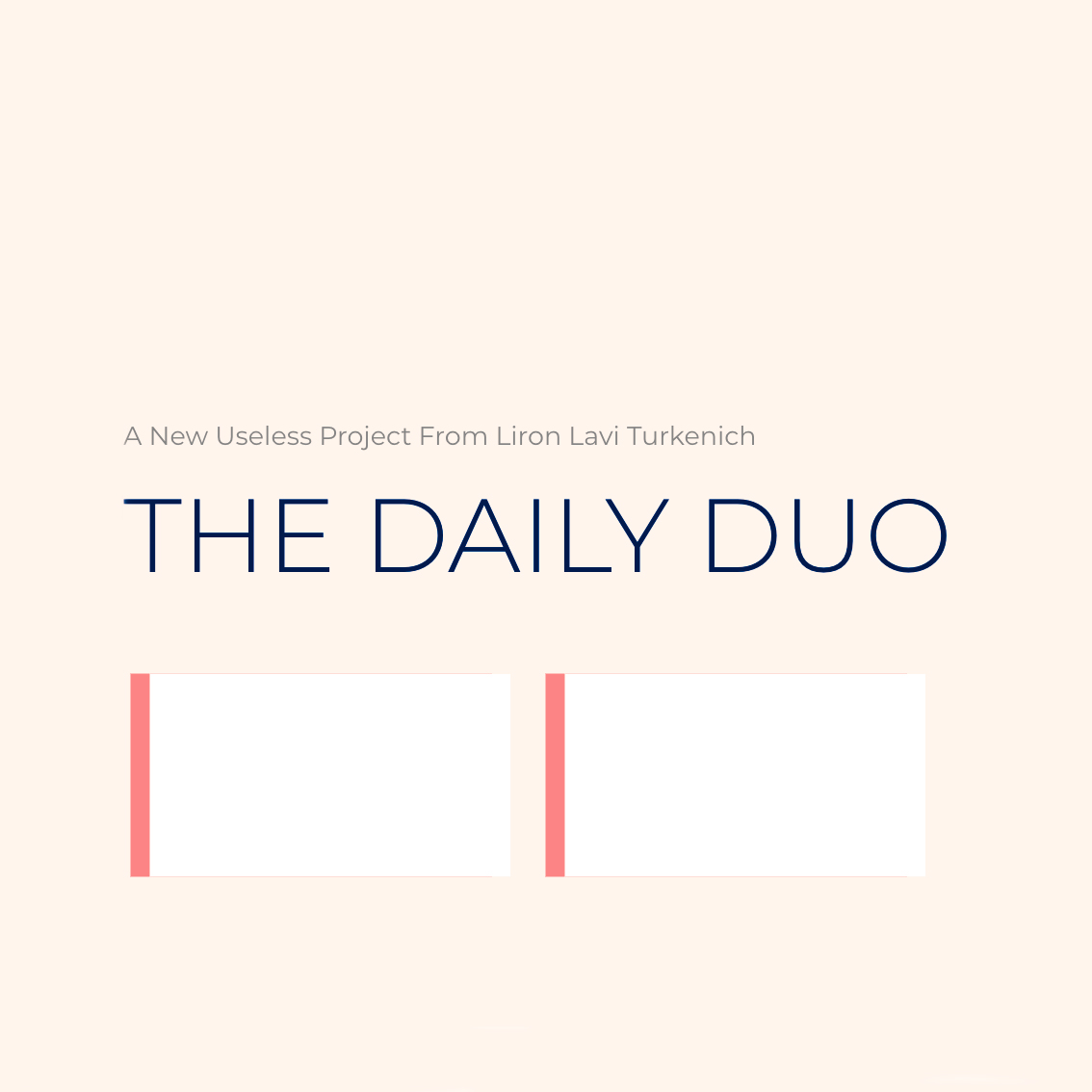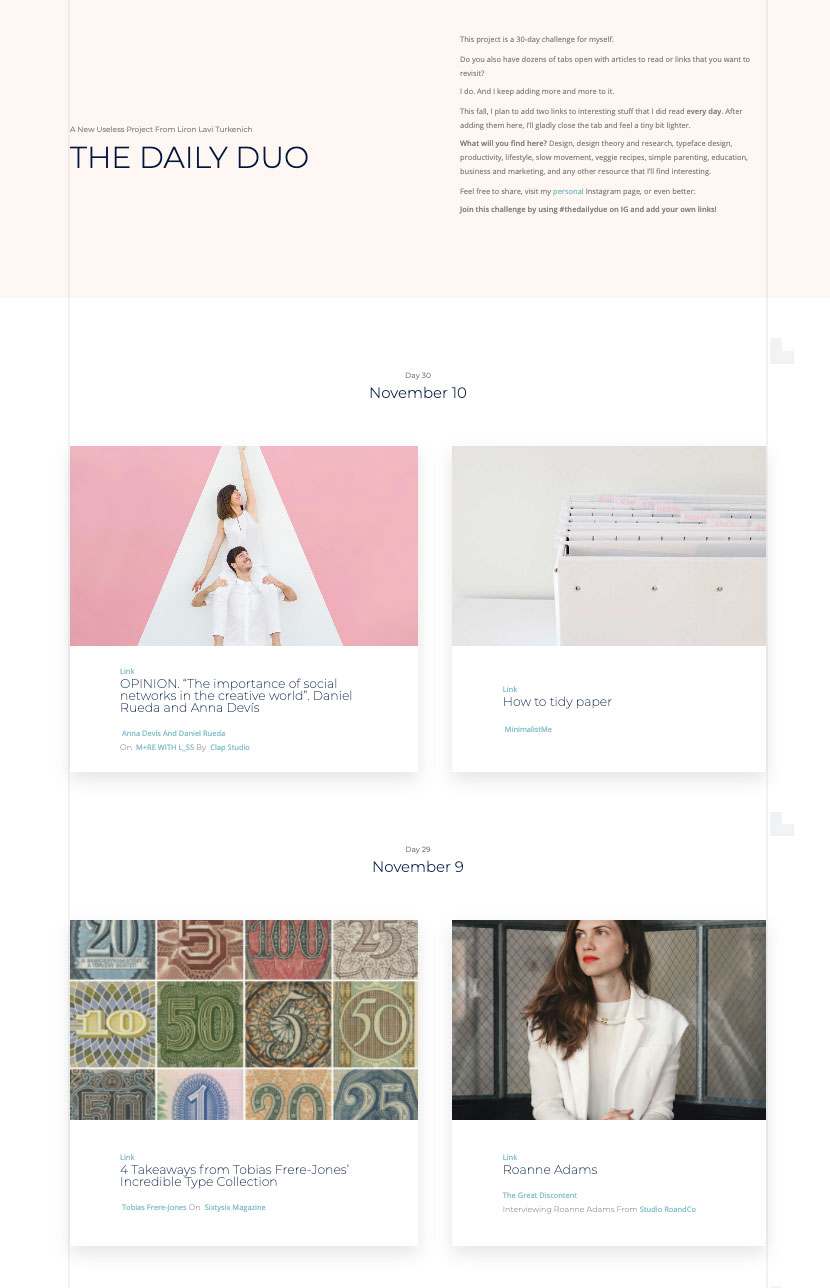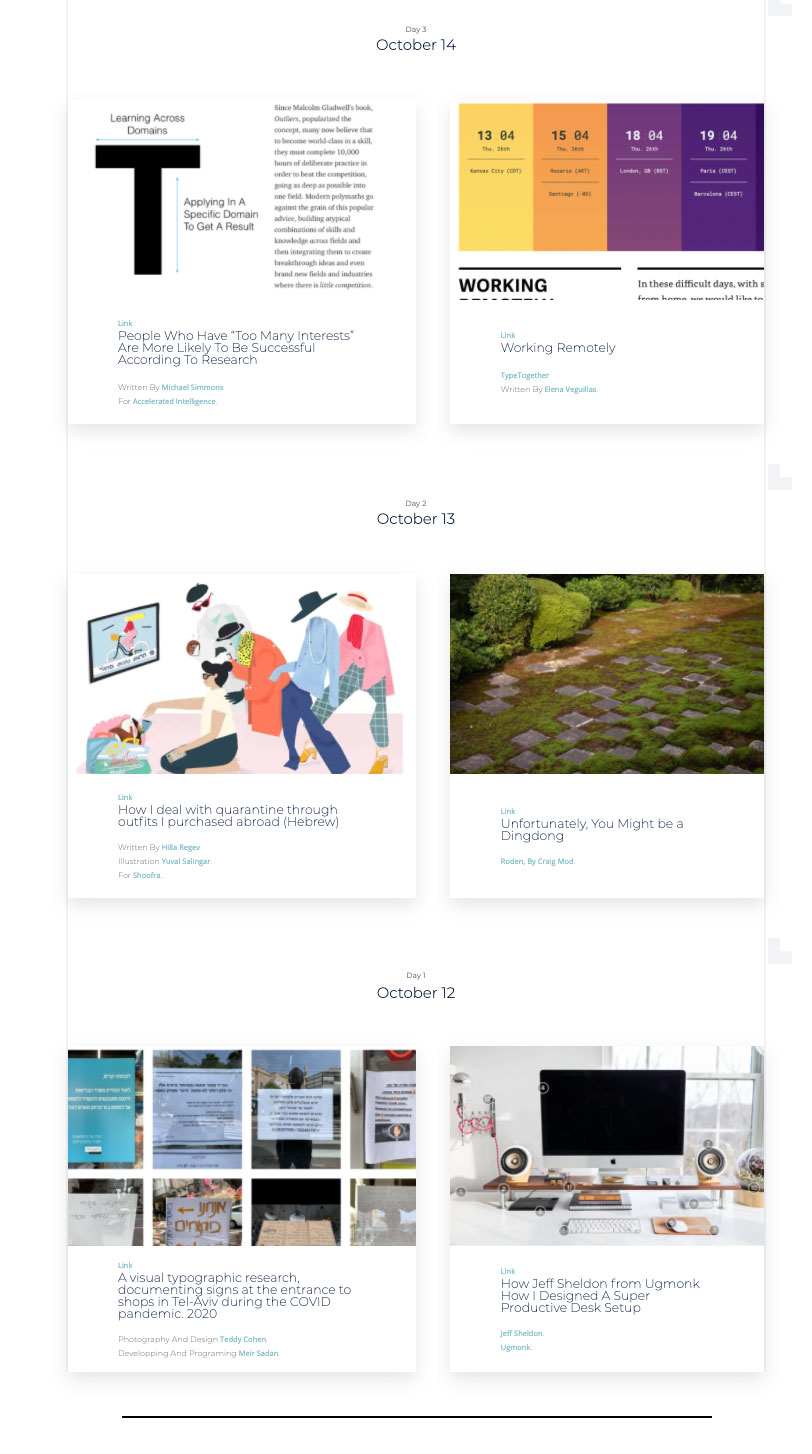Mental clutter: Heaps of articles I want to read, podcasts I want to listen to, photos and thoughts I crave to share. Organising my digital assets (aka mess) became a feel-good activity. With so many things unclear and uncertain in 2020, the thought of having a clean inbox, an organised closet, or a quarterly plan gave me peace of mind.
As a curious type of person, I tend to click *all* the links, open *all* the tabs, and write *all* the lists. But after opening them: nothing happens.
I knew that if only I found a systematic way to start covering all the things I want to read and learn or at least some, I would feel like I’ve made satisfying progress. Progress in what? In learning, in being a part of the world and what’s going on.
The solution? I gave myself briefs: A set of daily challenges with clear timeframe and rules. This was obviously all made up, and somehow I was still managing to hold myself accountable. Posting about my daily progress online, was an extra way to get some outside accountability. However, I had no idea who was reading or watching, and honestly? It didn’t matter.
So what were my 2020 challenges? Two month-long challenges of posting daily on my personal Instagram feed, a weekly Tuesday Topic Q&A video on Aravrit. And my favorite: The Daily Duo.

It started as a spark. I was busy preparing for a deadline when I suddenly cracked a new challenge: I had dozens of tabs open on my iPhone browser. Things I wanted to read “when I’ll have time”. We all know where this is going, there will never be a time that I’ll sit relaxed with a cup of coffee in my hand and just spend hours reading off my phone. I would much rather read a book, spend time with my family and friends, practice yoga, work more. However, these open tabs were feeling like a burden. Full of the guilt of not reading them, my mind was fogged and needed that mental space free.
The rules were simple: I would read through two tabs a day, for 30 days, and document them simply on a dedicated webpage. I created the template page on my messy portfolio-turned-website while procrastinating my pressing deadline.
The topics were random, and I loved it! I felt like I got an overview of what interests me and each tab reminded me of the context I wanted to read it in. The documenting part was clearly a favourite of mine. I guess the researcher’s mission never ends. I also enjoyed reflecting and thinking of some takeaways from this experiment:
It was lovely to have an activity to do with my phone other than mindlessly horizontally scrolling IG stories.
I wasn’t reading as many books as I normally do, this time was used for reading online.
There is, apparently, no limit to the number of productivity articles that a person is able to read. Even though the methods are all known to me, it’s like a reality show: just feels good.
I had to face a lot of deep thoughts about my various identities and interest fields. What would my designer friends think of me reading about how we process information? What would my mom-friends think about long-form interviews with type designers?
Though tabs were indeed closed, each article containing links opened more and more things to read. This is true, a web.

As much as I loved the zero open tabs when the challenge ended, a bit more than a month later, I am once again in the two-digits sphere.
Some more challenges are coming up in 2021. I can only hope that my biggest challenge would be how to easily pack for a trip abroad.

Bette(r) Days celebrates the things that did not suck in 2020. Each day in December, we’ll be posting about the highlights of our collective garbage fire of a year, type-related or not.
